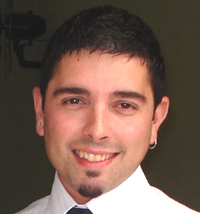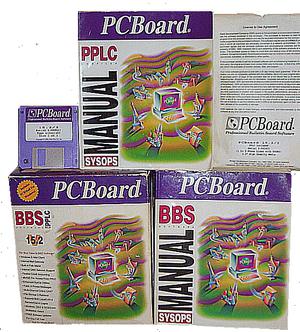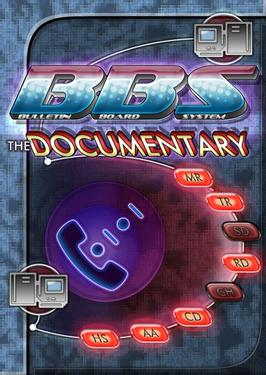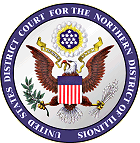Related Research Articles

A bulletin board system (BBS), also called a computer bulletin board service (CBBS), was a computer server running software that allowed users to connect to the system using a terminal program. Once logged in, the user can perform functions such as uploading and downloading software and data, reading news and bulletins, and exchanging messages with other users through public message boards and sometimes via direct chatting. In the early 1980s, message networks such as FidoNet were developed to provide services such as NetMail, which is similar to internet-based email.
Shareware is a type of proprietary software that is initially shared by the owner for trial use at little or no cost. Often the software has limited functionality or incomplete documentation until the user sends payment to the software developer. Shareware is often offered as a download from a website. Shareware differs from freeware, which is fully-featured software distributed at no cost to the user but without source code being made available; and free and open-source software, in which the source code is freely available for anyone to inspect and alter.

Phrack is an e-zine written by and for hackers, first published November 17, 1985. It had a wide circulation which included both hackers and computer security professionals.
Phreaking is a slang term coined to describe the activity of a culture of people who study, experiment with, or explore telecommunication systems, such as equipment and systems connected to public telephone networks. The term phreak is a sensational spelling of the word freak with the ph- from phone, and may also refer to the use of various audio frequencies to manipulate a phone system. Phreak, phreaker, or phone phreak are names used for and by individuals who participate in phreaking.
ChessBase is a German company that develops and sells chess software, maintains a chess news site, and operates an internet chess server for online chess. Founded in 1986, it maintains and sells large-scale databases containing the moves of recorded chess games. The databases contain data from prior games and provide engine analyses of games, while endgame tablebases offer optimal play in some endgames.

MindVox was an early Internet service provider in New York City. The service was referred to as "the Hells Angels of Cyberspace" — it was founded in 1991 by Bruce Fancher and Patrick Kroupa, two former members of the Legion of Doom hacker group.

Mark Abene is an American information security expert and entrepreneur, originally from New York City. Better known by his pseudonym Phiber Optik, he was once a member of the hacker groups Legion of Doom and Masters of Deception.

Kevin Lee Poulsen is an American former black-hat hacker and a contributing editor at The Daily Beast.
ToneLoc was a popular war dialing computer program for MS-DOS written in the early to mid-1990s by two programmers known by the pseudonyms Minor Threat and Mucho Maas. The name ToneLoc was short for "Tone Locator" and was a word play on the name of the rap artist known as Tone Lōc.
The Humble Guys (THG) were a cracking group for the IBM PC during the late 1980s founded by two friends known by the pseudonyms Candyman and Fabulous Furlough. The group was also noticed in the demoscene for some of their cracktros.

PCBoard (PCB) was a bulletin board system (BBS) application first introduced for DOS in 1983 by Clark Development Company. Clark Development was founded by Fred Clark. PCBoard was one of the first commercial BBS packages for DOS systems, and was considered one of the "high end" packages during the rapid expansion of BBS systems in the early 1990s. Like many BBS companies, the rise of the Internet starting around 1994 led to serious downturns in fortunes, and Clark Development went bankrupt in 1997. Most PCB sales were of two-line licenses; additional line licenses were also available.

Peiter C. Zatko, better known as Mudge, is an American network security expert, open source programmer, writer, and hacker. He was the most prominent member of the high-profile hacker think tank the L0pht as well as the computer and culture hacking cooperative the Cult of the Dead Cow.

Cult of the Dead Cow, also known as cDc or cDc Communications, is a computer hacker and DIY media organization founded in 1984 in Lubbock, Texas. The group maintains a weblog on its site, also titled "Cult of the Dead Cow". New media are released first through the blog, which also features thoughts and opinions of the group's members.

BBS: The Documentary is a 3-disc, 8-episode documentary about the subculture born from the creation of the bulletin board system (BBS) filmed by computer historian Jason Scott of textfiles.com.

Bruce Fancher is a former computer hacker and member of the Legion of Doom hacker group. He co-founded MindVox in 1991 with Patrick K. Kroupa.
The Computer Underground Digest (CuD) was a weekly online newsletter on early Internet cultural, social, and legal issues published by Gordon Meyer and Jim Thomas from March 1990 to March 2000.
The Big Electric Cat, named for an Adrian Belew song, was a public access computer system in New York City in the late 1980s, known on Usenet as node dasys1.
Michael Gregory Hoglund is an American author, researcher, and serial entrepreneur in the cyber security industry. He is the founder of several companies, including Cenzic, HBGary and Outlier Security. Hoglund contributed early research to the field of rootkits, software exploitation, buffer overflows, and online game hacking. His later work focused on computer forensics, physical memory forensics, malware detection, and attribution of hackers. He holds a patent on fault injection methods for software testing, and fuzzy hashing for computer forensics. Due to an email leak in 2011, Hoglund is well known to have worked for the U.S. Government and Intelligence Community in the development of rootkits and exploit material. It was also shown that he and his team at HBGary had performed a great deal of research on Chinese Government hackers commonly known as APT. For a time, his company HBGary was the target of a great deal of media coverage and controversy following the 2011 email leak. HBGary was later acquired by a large defense contractor.

In United States v. Riggs, the government of the United States prosecuted Robert Riggs and Craig Neidorf for obtaining unauthorized access to and subsequently disseminating a file held on BellSouth's computers. The file, referred to as the E911 file, gave information regarding BellSouth's products implementing 911 emergency telephone services. Riggs and Neidorf were both indicted in the District Court of the Northern District of Illinois on numerous charges relating to the dissemination of the E911 text file. As Riggs had previously been indicted in the Northern District of Georgia in relation to the same incident, his charges from Illinois were transferred to Georgia. Riggs ultimately pleaded guilty in Georgia and was sentenced to 21 months in prison and two years' supervised release. Neidorf pleaded not guilty in Illinois and the government dropped all charges against Neidorf four days after the trial began.
FreakNet is a Hacklab and hackerspace active in Catania since 1995, the first opened in Italy.
References
- 1 2 Scott, Jason (2005). BBS: The Documentary (DVD). Boston, MA, USA: Bovine Ignition Systems. OCLC 61156153. Archived from the original on May 11, 2008. Retrieved February 4, 2015.
{{cite AV media}}: CS1 maint: bot: original URL status unknown (link) - ↑ "GeekAustin 03 - Chris Lamprecht - indeed.com" (Video). October 1, 2008. Retrieved February 4, 2015.
- ↑ "Did you write the Tone Loc war dialer I used on the 90s?". February 26, 2014.
Yes, with Mucho Maas
- 1 2 Minor Threat (September 20, 1994). "Phrack Volume Five, Issue Forty-Six" (txt). Phrack. p. 13 of 28. Retrieved February 2, 2015.
- ↑ "Phrack, Volume Four, Issue Forty, File 11 of 14" (txt). Phrack. August 1, 1992. p. 11 of 14. Retrieved February 4, 2015.
- ↑ "Searchify – Hosted cloud search as a service" . Retrieved February 4, 2015.
- ↑ Basch, Diego (December 21, 2011). "IndexTank is now open source!". LinkedIn . Retrieved February 4, 2015.
- ↑ "A brief history of hacking". Kaspersky Lab.
- ↑ "A long time ago, in 1995, I was the first person banned from the Internet". Reddit. February 26, 2014.
- ↑ "Christopher Matthew Lamprecht". Federal Bureau of Prisons. May 26, 2010. Archived from the original on June 12, 2012.
- ↑ Agent Steal; Minor Threat (January 26, 1998). "Phrack Magazine Volume 8, Issue 52" (txt). Phrack. p. 05 of 20. Retrieved February 2, 2015.